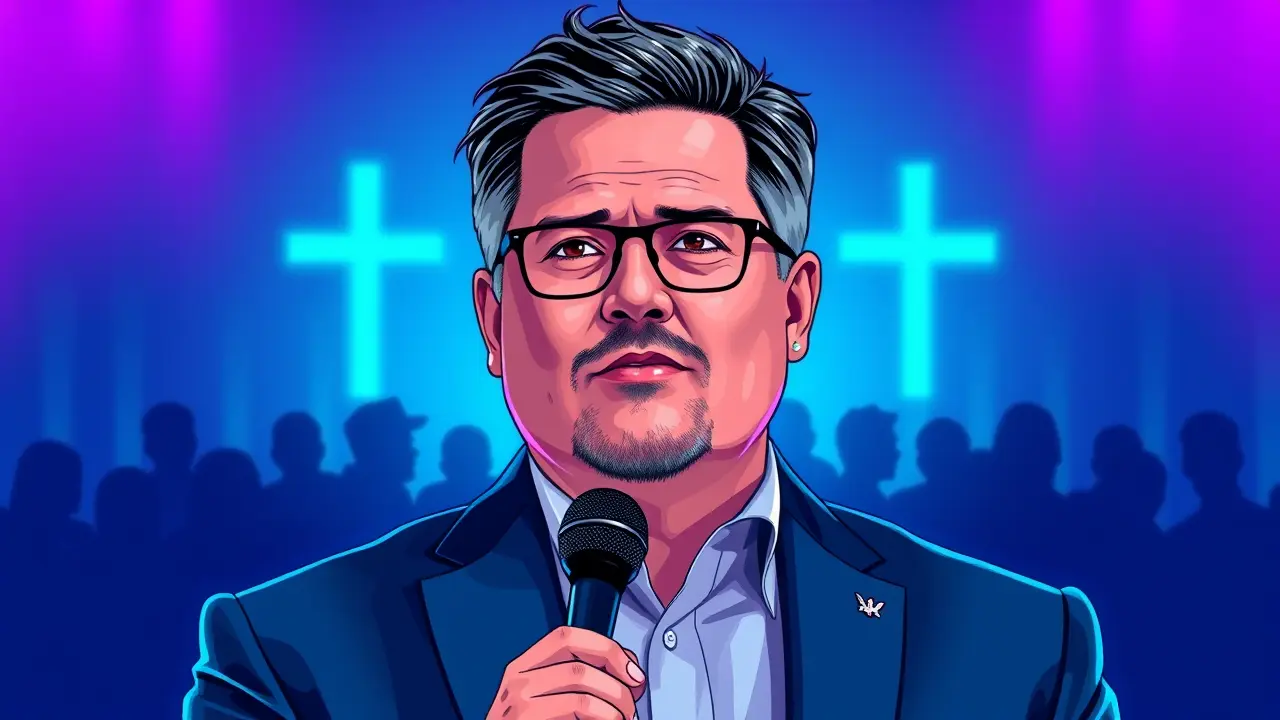
Politicsgovernments & cabinetsLeadership Transitions
US Vice-President Vance Defends Hope for Wife's Conversion.
RO
Robert Hayes
1 day ago7 min read
In a political landscape where personal faith increasingly intersects with public duty, US Vice-President J. D.Vance has ignited a significant controversy by openly defending his hope for his wife Usha's conversion from Hinduism to Christianity, a stance he articulated during a Turning Point USA event at the University of Mississippi honoring right-wing activist Charlie Kirk. The 41-year-old Vance, a fervent Catholic who himself converted in 2019, did not merely express a private spiritual aspiration but framed the subsequent public pushback as a manifestation of 'anti-Christian bigotry,' a charge that resonates deeply within the contemporary American culture wars and demands a thorough historical and political examination.This incident is far from an isolated personal remark; it is a microcosm of the enduring tension between religious liberty, familial privacy, and the expectations placed upon high-ranking officials in a constitutionally secular government. To understand the full weight of Vance's declaration, one must consider the long American tradition of political figures navigating faith, from John F.Kennedy’s seminal 1960 speech assuring Protestants of his independence from the Vatican to the more recent scrutiny of Mitt Romney’s Mormonism, yet Vance’s situation introduces a novel dimension—the explicit expression of a desired conversion within an interfaith marriage, directly involving a spouse from a non-Abrahamic tradition. This moves the discourse beyond private belief into the realm of proselytization at the most intimate level, raising profound questions about the boundaries of religious expression when it is directed inward toward one's own family while under the glare of the national spotlight.The setting of the remarks is equally telling; the Turning Point USA event, a hub for a particular strand of conservative activism, signals a deliberate alignment with a base for whom such religious assertiveness is not a liability but a virtue, a reaffirmation of cultural identity in the face of perceived secular encroachment. Vance’s framing of criticism as 'bigotry' is a potent rhetorical tool, effectively attempting to shield his position from critique by categorizing any dissent as prejudice, a strategy with precedents in political debates where challenging a religiously-grounded position is often mischaracterized as an attack on faith itself.The historical parallel, though not exact, might be drawn to moments when political leaders' personal lives became proxies for larger ideological battles, much as the Scopes Trial of 1925 was less about a teacher and evolution and more about the clash between modernism and fundamentalism. Expert commentary from theologians and political scientists would likely highlight the delicate balance in a pluralistic society: while Vance possesses every right to his personal hopes, the public articulation of those hopes, particularly from a platform of immense power, can be perceived as implicitly devaluing another major world religion, potentially alienating not only Hindu Americans but all who prioritize interfaith respect and coexistence.The possible consequences are multifaceted, affecting domestic political cohesion, diplomatic relations with India—a nation where Hinduism is the majority faith and whose government is highly sensitive to perceptions of religious disrespect—and the very tenor of public discourse in the United States. It reinforces a growing political divide where identity, both religious and cultural, is increasingly polarized, and it challenges the notion of a private sphere for public figures, suggesting that for some, the project of spiritual transformation does not stop at the self but extends into the family, even when that family is part of the public record.Analytically, this episode underscores the evolving nature of the Republican party, where a figure like Vance, with his trajectory from 'Hillbilly Elegy' author to Trump-aligned Vice-President, embodies a new synthesis of populist politics and assertive religious traditionalism, a far cry from the more reserved, mainline Protestant ethos that once dominated the party's leadership. The narrative here is not simply about one man's hope for his wife's soul; it is about the ongoing renegotiation of the role of faith in American public life, the power of grievance politics, and the enduring challenge of maintaining a civil society composed of profoundly different and deeply held beliefs.
#featured
#JD Vance
#Usha Vance
#interfaith marriage
#conversion
#Christianity
#anti-Christian bigotry
#US Vice-President
Stay Informed. Act Smarter.
Get weekly highlights, major headlines, and expert insights — then put your knowledge to work in our live prediction markets.
Comments
It’s quiet here...Start the conversation by leaving the first comment.
© 2025 Outpoll Service LTD. All rights reserved.